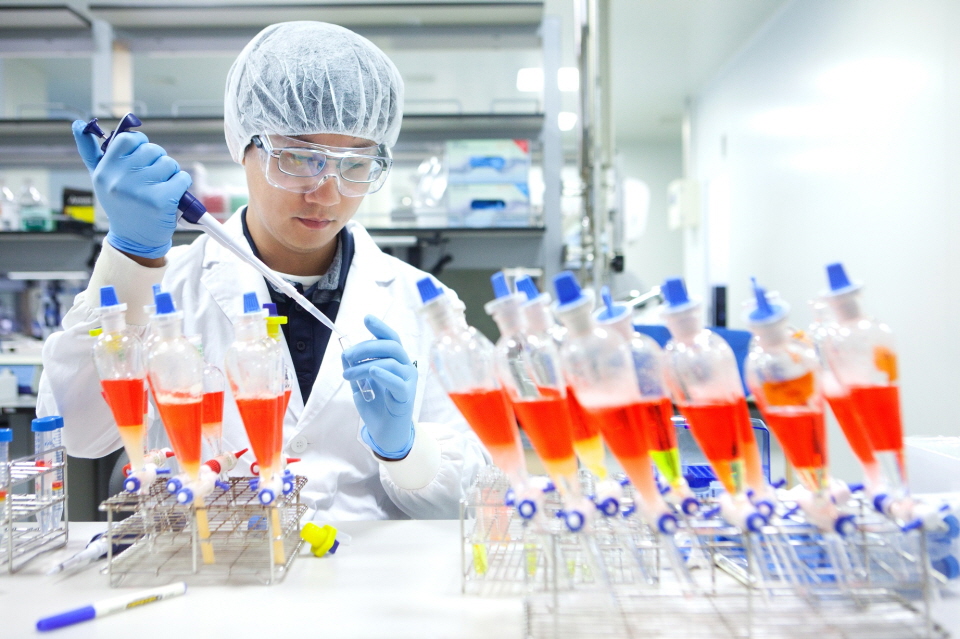● SKYCellflu, an Influenza Vaccine with Low Likelihood of Virus Mutation Starts being Shipped from L HOUSE in Andong
SKYCellflu, the only cell-cultured influenza vaccine in South Korea, has completed its first shipment this year.
SK bioscience announced on the 30th that its cell-cultivated influenza vaccine, SKYCellflu, received the government’s approval for shipment, which was the final step before sales to the market, and shipments began from L HOUSE, the company's vaccine factory in Andong, Gyeongbuk province. SK bioscience will supply 5 million doses (1 dose = amount to inoculate 1 patient) of the influenza vaccine domestically from the end of this year through early next year, and will start shipping to hospitals nationwide from next month.
SKYCellflu is the only cell-cultured influenza vaccine in South Korea and is produced through a state-of-the-art sterile incubator, requiring no administration of antibiotics or preservatives. Even people allergic to eggs can now be safely inoculated with SKYCellflu. The efficient, shorter production time for SKYCellflu than existing egg-based vaccines allows a more rapid response to influenza pandemics such as swine flu.
Recently, a series of domestic and foreign studies announced that cell-cultured influenza vaccines provide greater efficacy since virus mutations are less likely to occur in the cell-culture process than in vaccines produced from fertile chicken eggs.
According to data that analyzed the relative effects of influenza vaccines in the 2017-2018 season by the US Food and Drug Administration (FDA) and Centers for Disease Control (CDC), the cell-cultured quadrivalent influenza vaccines showed 11% higher preventive effect than quadrivalent egg-based influenza vaccines. A study comparing A-type H3N2 influenza virus and cell-culture vaccine virus by the World Health Organization (WHO) in February last year reported that cell-cultivated virus showed a concordance rate of 91% compared to only 44% with egg-based virus.
In a study conducted by SK bioscience, it was also found that the influenza virus cultured in cells for SKYCellflu production were less likely to mutate than those produced in fertile chicken eggs. SK bioscience conducted 15 subcultures (a culturing method involving the transfer to a new culture dish for continued cell proliferation) using fertile chicken eggs and SKYCellflu production cells, and the results were 3 mutations found in the fertile chicken eggs and no mutations in SKYCellflu production cells. SK bioscience's research results were officially announced in June at the 2019 Korean Interscience Working Group on Influenza Symposium (KIWI).
Based on these advantages, SK bioscience exported its cell culture production technology for SKYCellflu to a global vaccine company in February last year. In April this year, it received the World Health Organization’s first Pre-qualification (WHO PQ) certification for a cell-cultured influenza vaccine.
"We have completed all preparations to supply the product to the market ahead of the flu vaccination season," said Lee Sang-gyun, head of the Andong factory at SK bioscience. He also said "We will increase our competitive edge in the market by being the only cell-cultured influenza vaccine in Korea.”
SKYCellflu, an Influenza Vaccine with Low Likelihood of Virus MutationStarts being Shipped from L HOUSE in Andong

※ photo : SKYCellflu, an Influenza Vaccine with Low Likelihood of Virus Mutation Starts being Shipped from L HOUSE in Andong